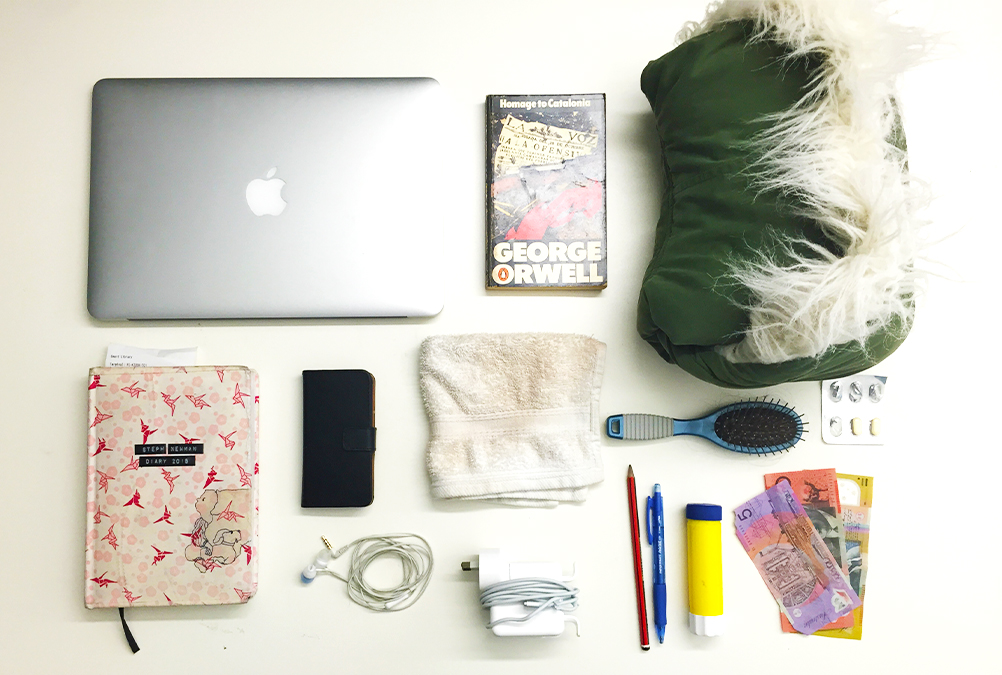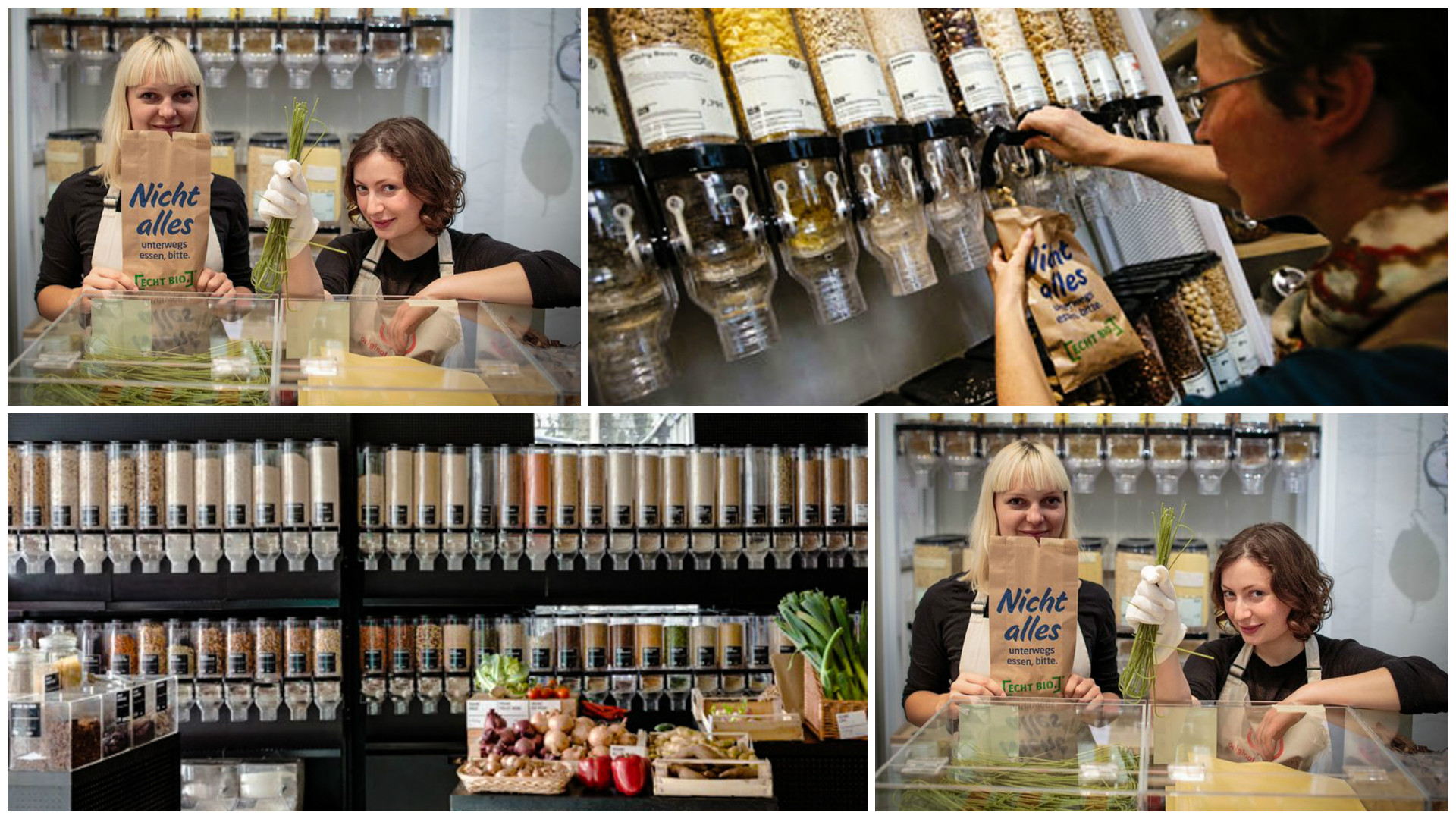Can you cut 1 Tonne of carbon pollution out of your life?
Take the challengeThis is a guest post from Amelia Barnes
Think back to how much rubbish your household produced this week alone; food scraps, packaging, plastic bags, tea bags, worn-out clothing, coffee cups, tissues… the list goes on.
For most homeowners, rubbish is an accepted fact of life, but a new movement has emerged to help eliminate household waste all together.
Blogger and author of Zero Waste Home, Bea Johnson along with her husband, two sons and dog have been pursuing a no-rubbish lifestyle since 2009.
Between them, the family produces just one litre-sized jar of rubbish a year.
Johnson takes her own reusable jar to the butchers to avoid packaging, makes her cleaning and beauty products, and has her sons urinate on indoor plants to mimic fertiliser.
"In the midst of the recession, my husband quit his job to start a sustainability consulting company and I tackled the house and our lifestyle. We've been waste-free ever since," she says.
Check out the 10 food scraps that you're throwing away that you can actually use!
Johnson follows a self imposed system of five 'R's, in order– refuse, reduce, reuse, recycle and rot – which is applied to every aspect of the family's life.
"Here are examples of products that are recurrent in a regular households that we no longer purchase, either because we realised that we do not need them or because we have replaced them with a reusable alternative: food packaging, paper towels, paper napkins, tissues, aluminum foil, wax paper, plastic wrap, sponges, trash bags, freezer bags, dental floss, disposable razors, band aids, toothpicks, hairspray, nail polish, feminine hygiene products, cleaning products, wipes, wrapping paper, magazines, newspapers, shampoo, hand wash, ironing starch, staples and tape," Johnson says.
"We prefer the use and aesthetics of the solutions that we have adopted and appreciate their money (and time) savings. Their cumulative money savings have even allowed us to install solar on our roof, which saves us even more."
Johnson says the lifestyle saves 40 per cent of her family's overall spending.
After discovering Johnson's lifestyle online, environmental studies student Lauren Singer was inspired.
By cutting out single-use items and making her own products, Singer has created next to no waste over the past three years.
The tiny amount of rubbish she has produced can fit in a small mason jar.
"Some simple changes I have made are composting my food scraps, buying my food in bulk (package free), shopping at the farmers market, and buying all second-hand clothing"- Lauren Singer
Her practices are best documented in her TEDxTeen talk, 'Why I live a zero waste life', and on her website Trash is for Tossers.
The lifestyle has struck a chord in Australia, with locals attempting to replicate the practices of Singer and Johnson at home.
Stephanie Newman, social media assistant at 1 Million Women, began pursuing a low-waste lifestyle in January this year.
"Upon returning from living overseas, I started considering the frugal way I lived when I was travelling (limiting possessions, investing in experiences instead of possessions) was exactly the way I should be living my everyday life," Newman says.

Above: Newman's "What I would keep if I could only have one bag worth of possessions"
"I started using bi-carb soda to wash my hair and exfoliate my face, which cut down the number of bottles and other gunk in tubes that seemed to be clogging up my bathroom cupboard…Bi-carb is also a great cleaning product, so it's replaced a huge number of things in my house."
Newman has since developed the following few key mottos to live by: 'make do and mend', 'less stuff, more life' and considering whether new purchases will truly enrich her life.
Check out 1 Million Women's top tips for cutting plastic out of your life.
Lawyer Emily Christie took on the lifestyle as a new year's resolution for 2015.
"It does take a bit of courage to go outside the norm sometimes, like taking your own containers to get takeaway…You get some funny looks but most people are cool with it," Christie says.
"Last year I challenged myself not to buy any non-consumable goods (clothes, books, etc) and I've kept that up to a large extent, buying second-hand clothes when I need them and borrowing books from the library."
Businesses are also taking the plunge to reduce their waste.

Above: Germany's zero waste supermarket is an inspiring example of businesses going pro-planet
Jessie Larcombe is the co-owner of SILO Paddington, an events space available for hire.
"As a business, I believe it's our responsibility to make conscious choices." Larcombe says.
"We have implemented recycling and compost bins, indoor herb gardens, zero packaging on the produce we purchase and making our own soy and nut milks."
The events space gives Larcombe the capacity to influence and educate the many people and businesses that come through her door each day.
"The challenge isn't really managing our own waste but managing other peoples."
Valentina Zarew, business strategist and sustainability advocate at The Bravery, incorporates her personal values into her work life.
Her advice to other homeowners and business is to avoid single use items, grow your produce, and make friends with chickens.
Related: Achieving a zero-waste kitchen
"I know a few people around the area that have chickens or a compost bin. I save all of my food scraps and take them on my morning run to their house," Zarew says.
Banner image: Shutterstock
READ THIS NEXT: [Infographic] Food waste facts to make you think twice
